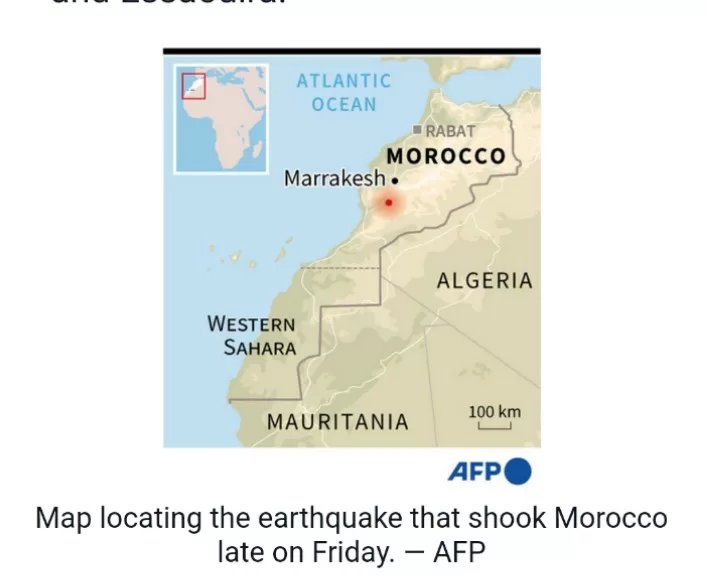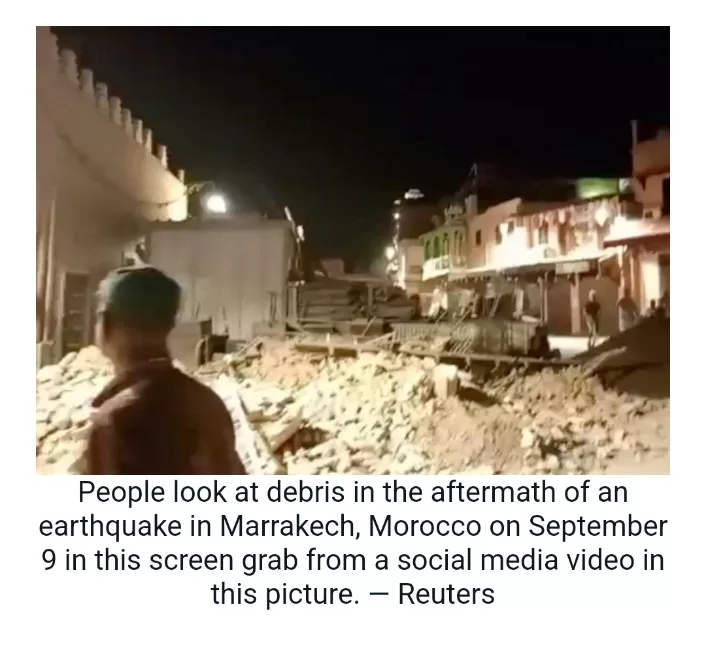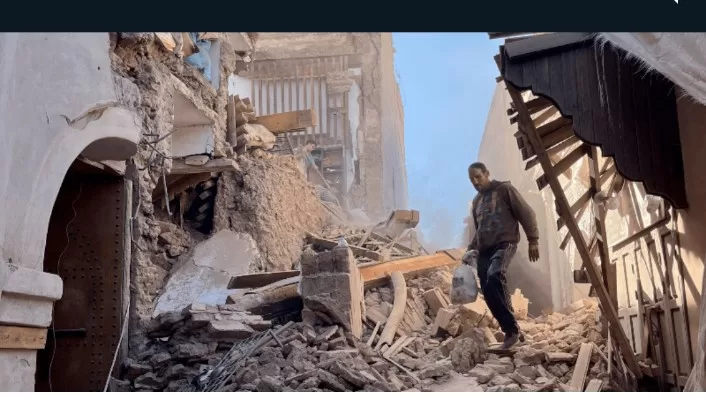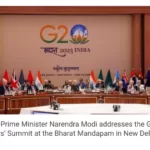Morocco was struck by its most destructive earthquake in recent history, with a staggering death toll of 1,037 individuals reported on Saturday. The seismic catastrophe left a trail of devastation, prompting both residents and tourists to scramble for safety in the dead of night.
According to state television, the interior ministry disclosed that over 1,200 people sustained injuries during the earthquake, which originated in Morocco’s High Atlas mountains late on Friday evening.
The earthquake, registering a magnitude of 6.8, jolted the mountainous region situated 72 kilometers (45 miles) southwest of the renowned tourist destination Marrakesh at precisely 11:11 PM local time (10:11 PM GMT), as confirmed by the US Geological Survey.
The tremors were strongly felt in coastal cities, including Rabat, Casablanca, and Essaouira.

Abdelhak El Amrani, a resident of Marrakesh, vividly recounted the harrowing experience, stating, “We felt a very violent tremor, and I realized it was an earthquake. I could see buildings moving. We don’t necessarily have the reflexes for this type of situation. Then I went outside and there were a lot of people there. People were all in shock and panic. The children were crying, and the parents were distraught.”
The earthquake’s impact was so forceful that it disrupted power and telecommunications networks temporarily, plunging the affected areas into darkness and isolating them from communication.
Faisal Baddour, an engineer, described the chaos that ensued, stating, “People went out into the street just after this total panic, and there are families who are still sleeping outside because we were so scared of the force of this earthquake. It was as if a train was passing close to our houses.”
The aftermath of the disaster revealed a scene of rubble-strewn streets and collapsed walls, as documented in videos and photos shared on social media.
In Marrakesh’s historic Jemaa el-Fna square, part of a minaret was seen collapsed, further underscoring the extent of the destruction.

As apprehension of aftershocks loomed, hundreds of people congregated in the square, some with blankets and others sleeping on the ground, choosing to spend the night outdoors.
Houda Outassaf, a local resident, expressed the shock and trauma that gripped the population, stating, “It was a truly staggering sensation. We’re safe and sound, but I’m still in shock. I have at least 10 members of my family who died… I can hardly believe it, as I was with them no more than two days ago.”
The Moroccan authorities swiftly mobilized resources to provide assistance to the affected regions, with the regional blood transfusion center in Marrakesh urging residents to donate blood to aid the injured.
Reports emerged of a family trapped under the debris of their collapsed house in the town of Al-Haouz, near the earthquake’s epicenter.
The US Geological Survey’s PAGER system, responsible for preliminary assessments of earthquake impacts, issued a red alert for extensive economic losses, indicating that significant damage is expected, and a comprehensive disaster response may be necessary.
Internet connectivity in Marrakesh faced disruptions due to power outages, as reported by global internet monitor NetBlocks.
In neighboring Algeria, the earthquake’s tremors were also felt, though they did not result in damage or casualties, according to the Algerian Civil Defence.
This devastating earthquake evoked an outpouring of condolences and offers of support from leaders around the world. Among them, US President Joe Biden expressed sympathy for the victims and pledged readiness to provide assistance.
Chinese President Xi Jinping conveyed his condolences and expressed confidence in Morocco’s ability to recover under King Mohammed VI’s leadership. Russian President Vladimir Putin shared his grief and offered support to the Moroccan people.
Leaders from various nations, including the UK, France, Turkey, the UAE, Saudi Arabia, Egypt, and Israel, extended their condolences and offered aid.
The global response to this tragedy underscores the solidarity and compassion of nations in the face of natural disasters, as Morocco begins the challenging process of recovery and rebuilding.







